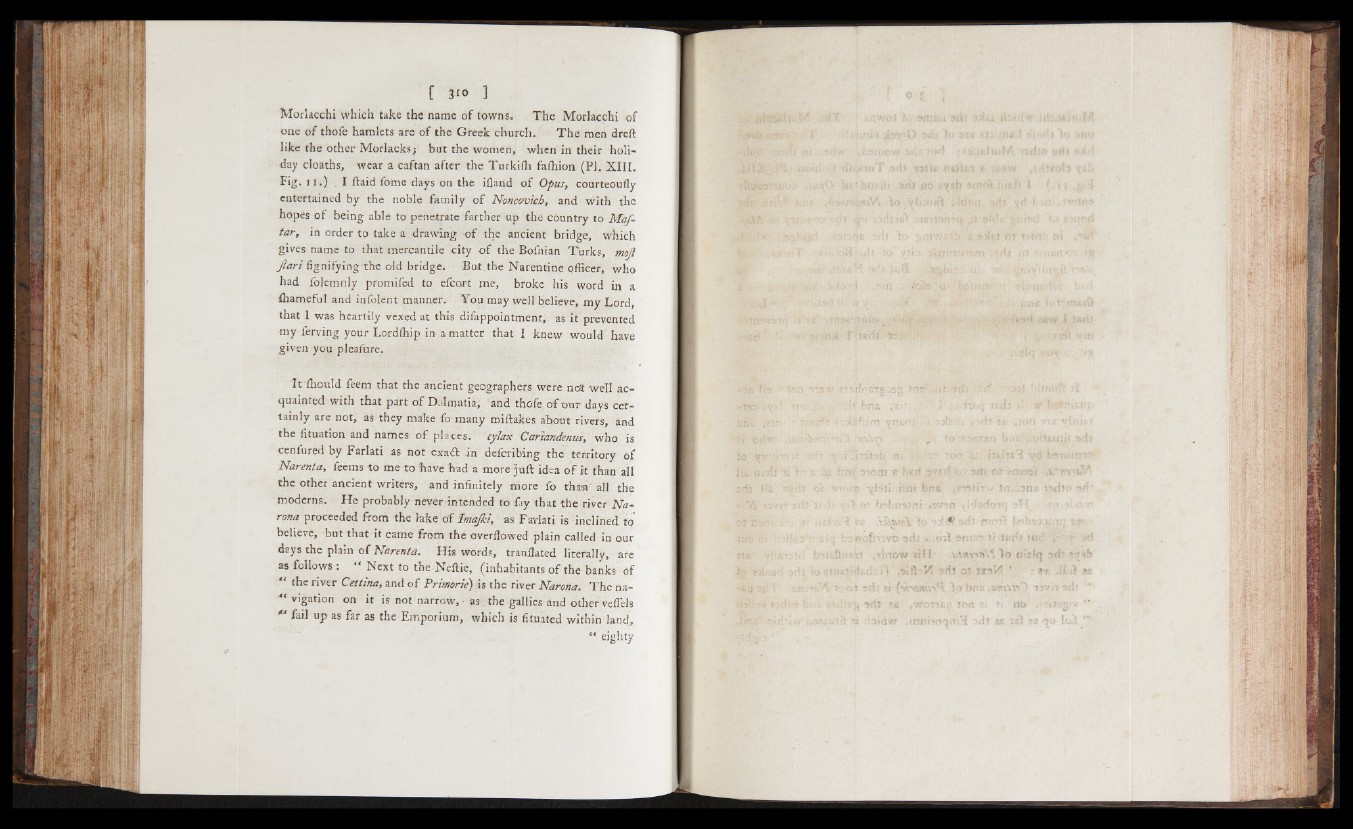
Morlacchi which take the name o f towns. The Morlacchi o f
one o f thofe hamlets are o f the Greek church. The men dreft
like the other Morlacks; but the women, when in their holiday
cloaths, wear a caftan after the Turkiih faihion (PI. XIII.
Fig. i i . ) I ftaid fome days on the ifland o f Opus, courteoufly
entertained by the noble family o f Noncovich, and with the
hopes o f being able to penetrate farther up the country to Maf-
tar, in order to take a drawing-of the ancient bridge, which
gives name to that mercantile city o f the Bofnian Turks, moji
Jiari lignifying'tbe old bridge. But the Narentine officer, who
had folemnly promifed to efcort me, broke his word in a
ihameful and infolent manner. You may well believe, my Lord,
that 1 was heartily vexed at this difappointment, as it prevented
my ferving your Lordihip in a matter that I knew would have
given you pleafure.
It fhould feem that the ancient geographers were not well acquainted
with that part o f Dalmatia,- and thofe o f our days certainly
are not, as they make fo many miftakes abcrat rivers, and
the iituation and names o f places, cyiax CartandenU'S, who is
cenfured by Farlati as not exadt in defcriblng the territory of
Narenta, feems to me to have had a more juit idea o f it than all
the other ancient writers, and infinitely more fo than all the
moderns. He probably never intended to fay that the river Na-
rona proceeded from the lake o f Imajkt, as Farlati is inclined to
believe, but that it came from the overflowed plain called in our
days the plain o f Narenta. His words, tranflated literally, are
as follows : “ Next to the Neftie, (inhabitants of the banks of
“ the river Cettina, and o f Primorie) is the river Narona. The na-
■“ vigation on it is not narrow, - asjj the gallies and other veflels
T UP as far as the Emporium, which is fituated within land,
■“ eighty
(fSii irtni hi
B e h n s t r r r .
. l i e
•VI srti ot jxot1
S SW v i t o D ll
1